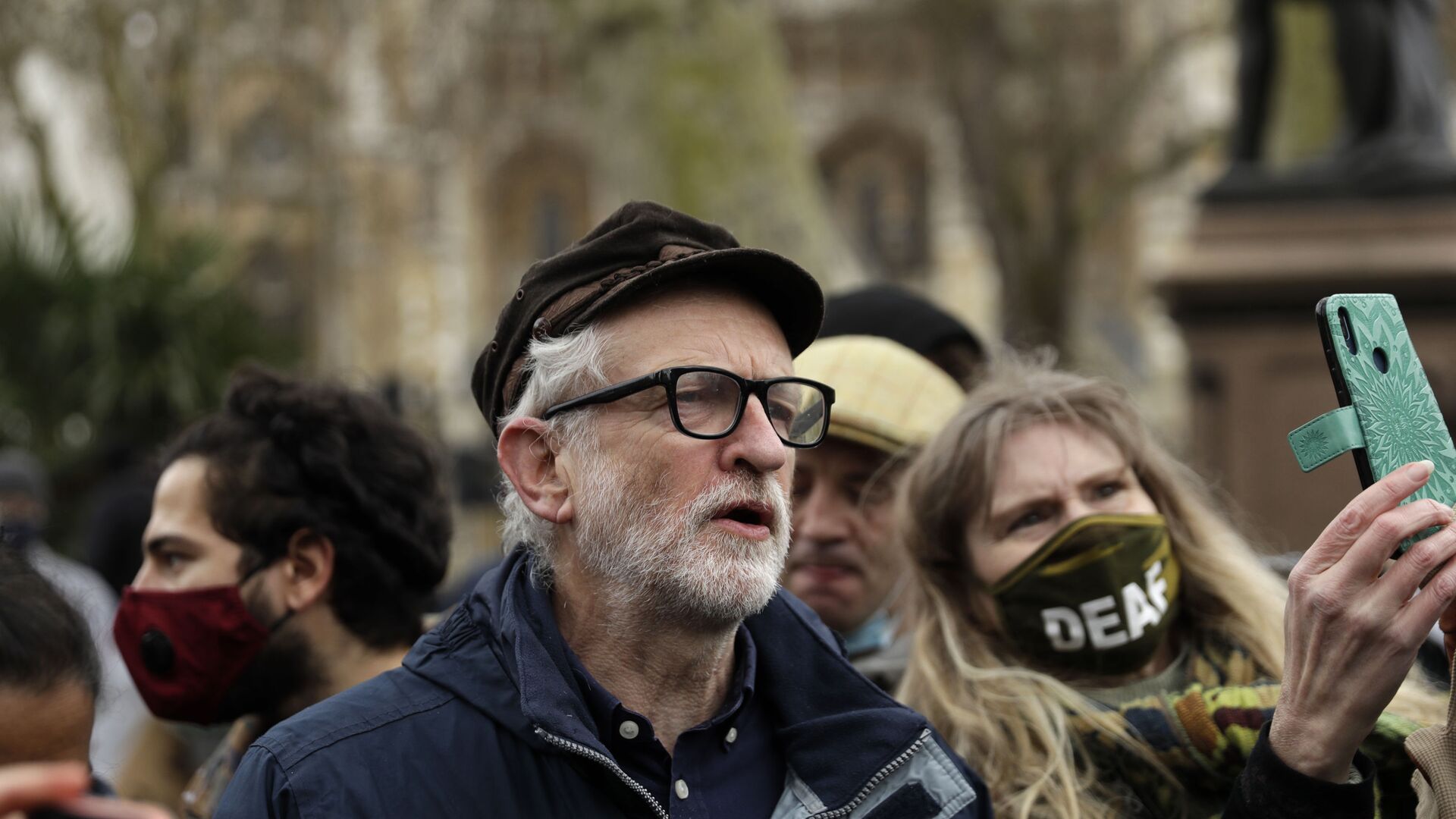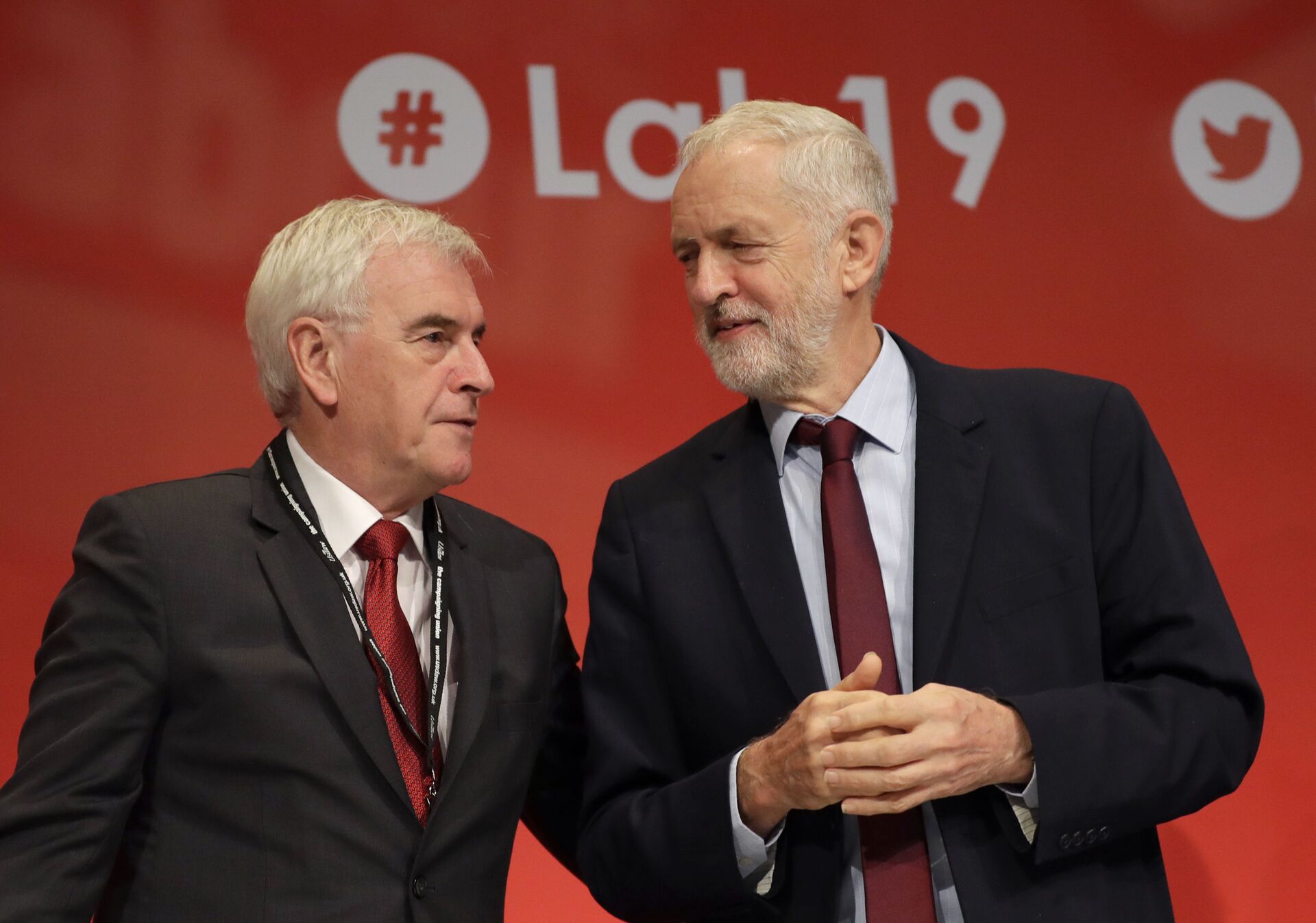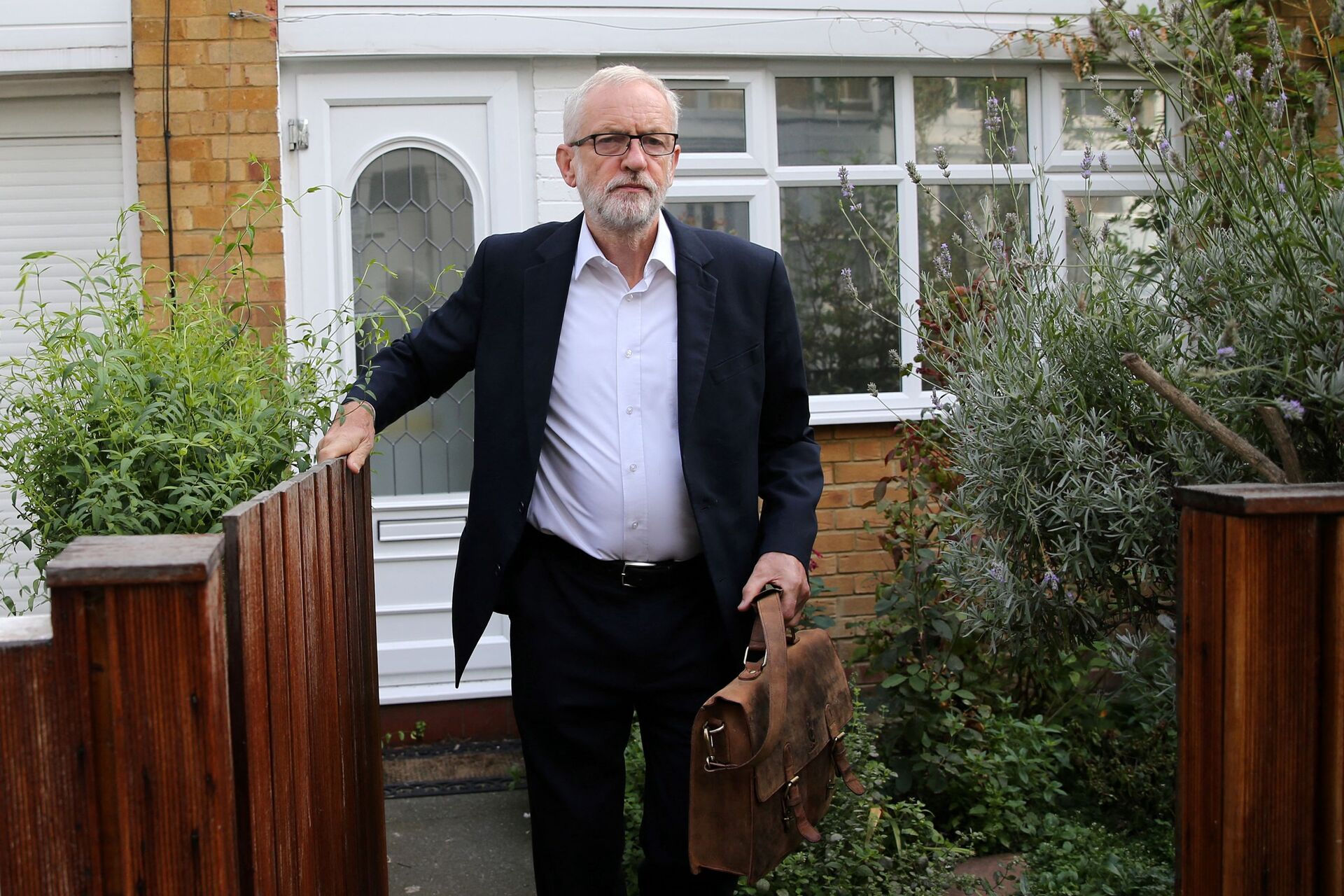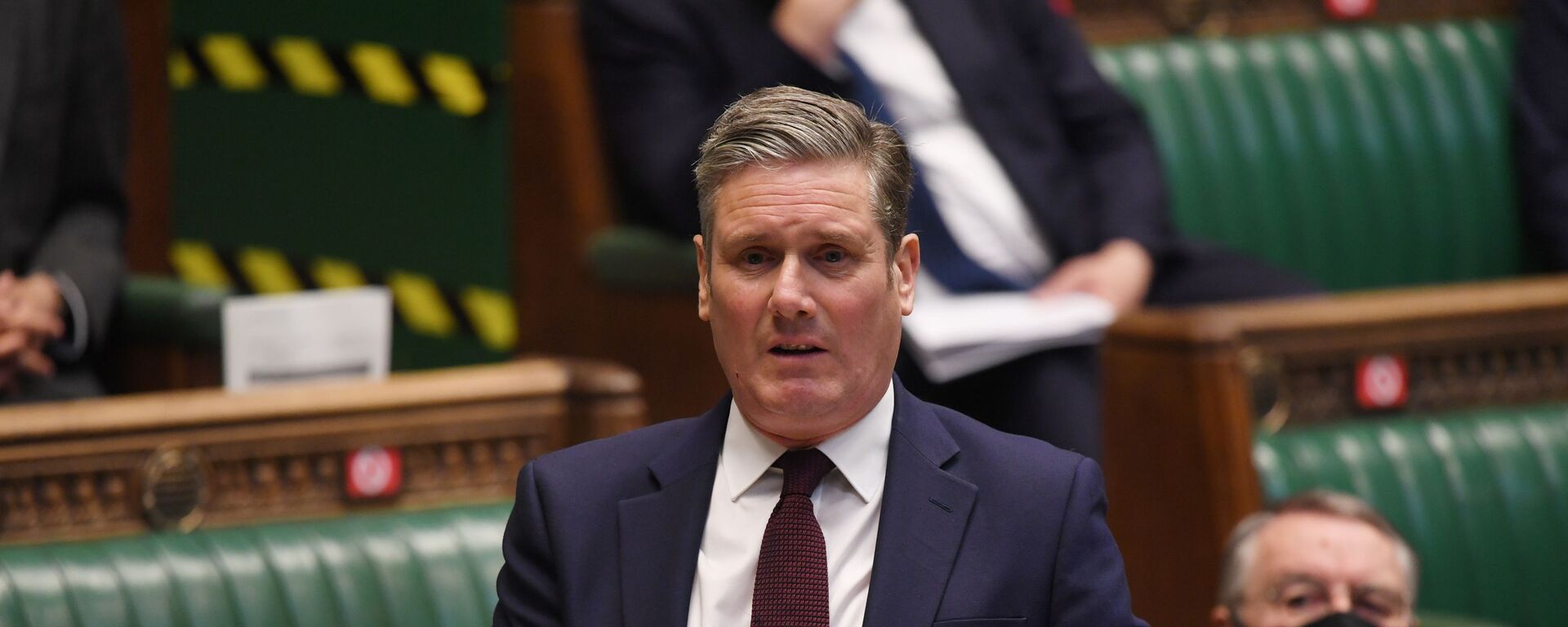Labour Leader Starmer Should 'Let Corbyn Back to Create Unity Within the Party', Analyst Says
12:28 GMT 09.08.2021 (Updated: 15:15 GMT 28.05.2023)

© AP Photo / Matt Dunham
Subscribe
In late May, former Shadow Chancellor John McDonnell claimed the time is already ripe for Jeremy Corbyn to be readmitted as a Labour MP by the party's leader Keir Starmer.
Supporters of Jeremy Сorbyn will not likely succeed in their current motion to reinstate him as a Labour parliamentary whip, and this possible flop will show once again "how divided the Labour Party is", says Alistair Jones, an associate professor of politics at De Montfort University in the UK.
According to him, the activists loyal to Corbyn are "trying to find any rules within the [forthcoming] Labour Party conference to enable them to achieve" the goal of readmitting Corbyn "because they believe that if they can get him back into the party, they can then get him to stand for party leader against Keir Starmer and potentially win".
The viewpoint was partially shared by Ben Williams, a tutor in politics and political theory at the University of Salford, who warned of consequences from Corbyn's potential reinstatement.

Jeremy Corbyn, leader of Britain's opposition Labour Party, right, and John McDonnell Shadow Chancellor on stage during the Labour Party Conference at the Brighton Centre , Tuesday, Sept. 24, 2019.
© AP Photo / Kirsty Wigglesworth
"[…] The risk is that if he does come back in the Labour Party, it could have a negative impact on Labour's image. That's kind of a gamble that will have to be taken if this decision happens. So it's hard to predict. But the point is, he is a very divisive figure where he has lots of enthusiastic supporters, but he also has a lot of enemies and a lot critics who don't like him", Williams underlined.
He went on by stressing that Labour remains "very divided" at the moment, which Williams said "is one of the major challenges that [Labour leader] Keir Starmer is having to deal with".
"[…] Up to now, I think there is quite a lot of criticism that he hasn't done a particularly good job of unifying the party, and the party is divided. […] If he wants to unify it, one of the moves to do that might be to let Jeremy Corbyn take the whip and take up the full rights of a Labour MP", the political scientist asserted.
Williams suggested that with Starmer desperately trying to tackle Labour's divisions, he may feel "you have to let Jeremy Corbyn back to create unity within the party".

Britain's opposition Labour party leader Jeremy Corbyn leaves his home in north London on September 3, 2019
© AFP 2023 / ISABEL INFANTES
The analyst warned that "it might not pay off, because according to the polls, Corbyn isn't particularly popular", which is why "we're basically saying it's a risk, it's a gamble".
"So it's a real difficult decision, I suppose. But he [Starmer] has got to try and resolve this because Jeremy Corbyn really can't stay suspended forever. He was elected as a Labour MP and according to natural justice, he should be allowed to resume his role […]", Williams concluded.
Corbyn's Supporters Pushing for His Reinstatement
The comments come after The Guardian reported on Sunday that Corbyn's supporters had worked out a proposal that may provide party members with the power to reinstate Corbyn as a Labour MP.
The proposal envisages an urgent rule change to close a "gaping hole in the Labour Party rule book" and hand more authority to party members.
In May, former Shadow Chancellor John McDonnell urged Starmer to readmit Corbyn, saying in an interview with Sky News that "Keir, when he was elected leader, said he would unite the party and that's why he received such overwhelming support when he was elected leader".
"One step in demonstrating his uniting the party is to give Jeremy back the whip. I think it would be a really helpful act if Keir did that now", McDonnell added.
In October 2020, Corbyn was suspended from the Labour Party for claiming the scale of anti-Semitism in the group had been "dramatically overstated for political reasons". His remarks came less than an hour after the publication of a report by the Equality and Human Rights Commission (EHRC), which revealed that its investigation "into anti-Semitism in the Labour Party" had found "unlawful acts of discrimination and harassment".
A month later, Corbyn was readmitted to the party, but Starmer, however, refused to restore the parliamentary whip to Corbyn, pledging to continue disciplinary action against the former leader through channels outside Labour.
Internal Divisions Within Labour
The developments added significantly to a split inside the party as about 80,000 people withdrew their membership following Corbyn's suspension over anti-Semitism allegations. With the clock ticking on the upcoming Labour Party conference, members continue "to leave in droves", The Guardian cited a senior party source as saying.
"There's no organising going on in any constituencies. There's no strategy, or programme, or project", the source claimed.
In an interview with the Financial Times, Starmer pledged to "turn Labour inside out", urging activists to embrace former Prime Minister Tony Blair's political legacy to help the party win the next election.
Referring to the issue of divisions, Professor Jones, for his part, explained that "the fight for the ideological purity of the party is seen by many as being more important than the fight against the Conservatives".
He referred to Labour supporters who back Jeremy Corbyn and who "would rather have the Tories in power than Keir Starmer" at the helm.
"And there are people who are supporting Keir Starmer who would rather have the Tories in power than Jeremy Corbyn as prime minister. So the fight within the Labour Party is all about who controls the party, and that is the bigger fight for many Labour Party members. And they distrust the other side within their own party more than they distrust the Conservatives", Jones noted.




